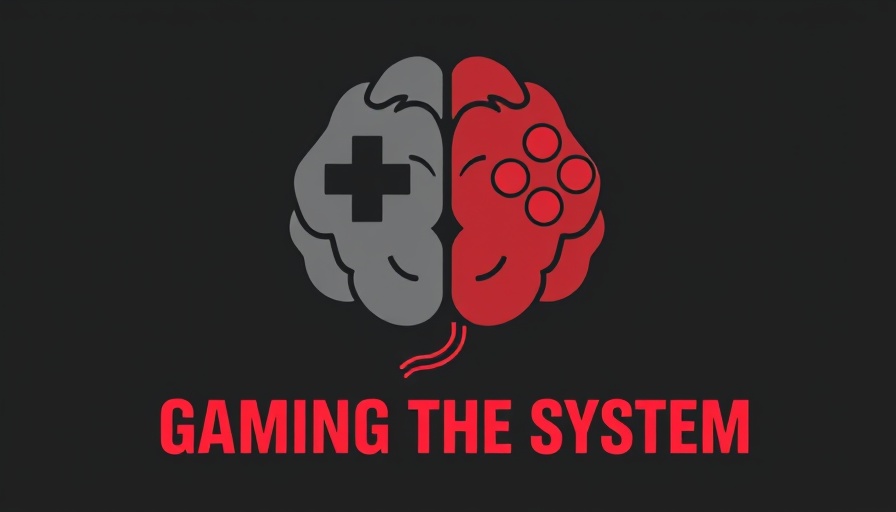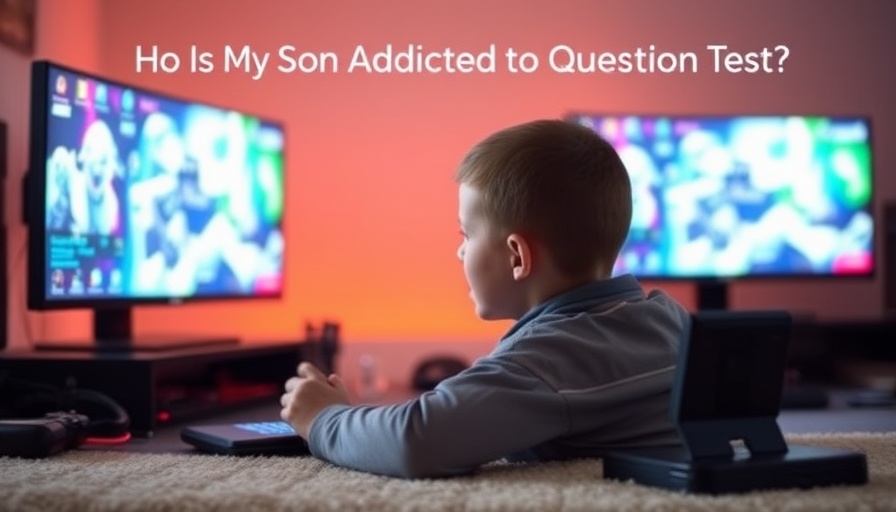
Understanding the Misconceptions Surrounding Gaming Addiction
When parents suspect their child may be struggling with gaming addiction, it's common to confront them directly, labeling their behavior as addictive. However, research shows this approach can backfire, leading to increased resistance rather than motivation to change. This may feel counterintuitive, but understanding the psychology behind it is vital for parents hoping to help their children.
The Importance of Empathy in Communication
Instead of labeling your child, it may be more effective to communicate openly, focusing on empathy rather than accusations. Understand that kids might turn to gaming as a way to cope with stress or social challenges. Engaging in a dialogue where they do not feel judged can open pathways for discussion about healthier gaming habits. A study published in the *Journal of Adolescent Health* indicates that helping adolescents recognize their feelings and develop coping strategies can positively influence their gaming behaviors.
Insights from Gaming Experts
Experts from various fields emphasize the importance of compassion and understanding. Dr. David Greenfield, a psychologist specializing in internet addiction at the Center for Internet and Technology Addiction, highlights how parents can create a supportive environment. Instead of shouting, "You're addicted!" try exploring why gaming is meaningful to your child. This could uncover critical insights into their emotional needs and preferences.
Real-Life Anecdotes: Success Stories of Change
Many parents have successfully navigated this tricky terrain by adopting a constructive approach. For instance, one mother, Sarah, recalled that instead of accusing her son, she took the time to understand his gaming interests and discovered that it was a source of connection with friends. By emphasizing quality time together, they transitioned to more balanced screen time that included family gaming sessions.
Future Predictions: Shifts in Gaming Culture
As gaming continues to evolve, it is crucial to stay informed about how gaming culture may change. The upcoming generations will likely see advancements in gaming technology that integrate mindfulness and healthy habits for players. Industry leaders are advocating for initiatives that promote responsible gaming behaviors among young audiences, suggesting that perhaps gaming culture will adapt in ways that lessen the risk of addiction.
Practical Tips for Parents
- Set Boundaries: Collaborate with your child to establish healthy limits on gaming time, which foster more balanced activities.
- Encourage Outdoor Activities: Engage your child in device-free activities, which can serve as a fulfilling alternative to gaming.
- Utilize Resources: Take advantage of tools and forums like Game Quitters to connect with other parents facing similar challenges and find support.
Emotional Appeal: The Stakes Involved
It’s vital for parents to understand the emotional stakes involved in gaming addiction. A child’s world increasingly revolves around virtual connections, and feeling alienated from family can heighten their need for gaming as a refuge. Unpack these emotions together rather than demonizing them, allowing your child to share what gaming means to them.
Conclusion: Transforming Perspectives
The key takeaway is clear – the approach parents take when discussing gaming addiction can significantly impact their child's response. Instead of leading with accusations, fostering a compassionate dialogue grounded in understanding can yield more fruitful results. By working collaboratively with your child, not only can you encourage healthier gaming habits, but also create deeper bonds within your family.
If you're ready to dive deeper into enhancing your family's relationship with gaming, consider reaching out to resources such as the Game Quitters community or booking a strategy call with a certified addiction specialist to delve deeper into these concerns.
 Add Row
Add Row  Add
Add 




Write A Comment